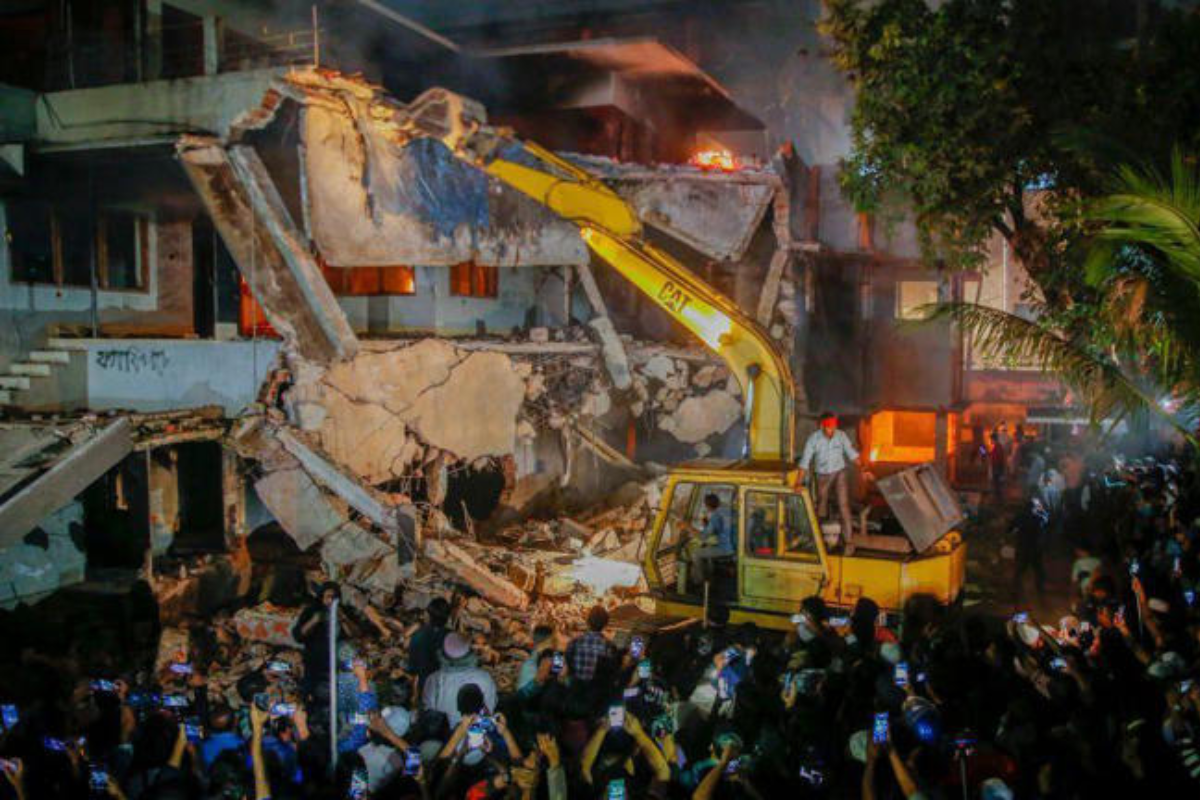Protesters in Bangladesh have escalated their actions by demolishing the family home of former Prime Minister Sheikh Hasina. The protests, which began in early February 2025, are part of growing political unrest in the country, fueled by public dissatisfaction with the government’s leadership.
On February 5, protesters gathered in large numbers in the central region of Bangladesh, where Hasina’s family home is located. They chanted slogans against the ruling Awami League party and called for political change. “This is more than just a protest against one person,” said Mohammad Ali, a local protest leader. “This is about fighting corruption and inequality.”
Hasina’s family home, once a symbol of her political power and influence, became the focal point of the protests. Demonstrators blame her and her administration for the country’s ongoing economic struggles and allegations of government corruption. The home, which had been empty during the attack, is now reduced to rubble, further intensifying the unrest surrounding her leadership.
The protests have become increasingly violent as tensions rise between the government and opposition groups. Local police were present during the demolition but did not intervene immediately, allowing the protesters to continue their actions. Many locals see this destruction as a significant symbol of the deepening political crisis in Bangladesh. “People are angry because they feel their voices are not being heard,” said resident Anwar Hossain.
This attack on Hasina’s family home is just one of many signs of the growing political instability in Bangladesh. The protests have intensified as the national elections approach, and protesters are calling for significant leadership changes. Many believe that Hasina’s administration has failed to address key issues such as corruption, unemployment, and the rising cost of living.
As the election date draws closer, these protests are expected to grow. Opposing political groups have joined the demonstrations, calling for Hasina’s resignation and the formation of a new government. “We have no faith in the current government,” said protester Farida Sultana. “It’s time for a change.”
The government’s response to the protests has been largely defensive. Officials have condemned the destruction of Hasina’s family home but have not provided any clear steps to address the concerns of the protesters. Critics argue that the government’s inability to handle the unrest could worsen the situation. “The government needs to listen to the people and take action to resolve these issues before things get out of control,” said political analyst Rina Choudhury.
The impact of these protests will be felt for months, especially as the country prepares for the upcoming elections. The destruction of Hasina’s family home is likely to become a rallying cry for opposition groups and could further polarize the nation. The government’s ability to address the growing political divide and restore stability remains uncertain.
As the situation continues to unfold, many are watching to see how Hasina’s government will respond to the increasing pressure. Will the protests spark further unrest, or will the ruling party be able to maintain control and guide the country through a peaceful election process? Only time will tell.




